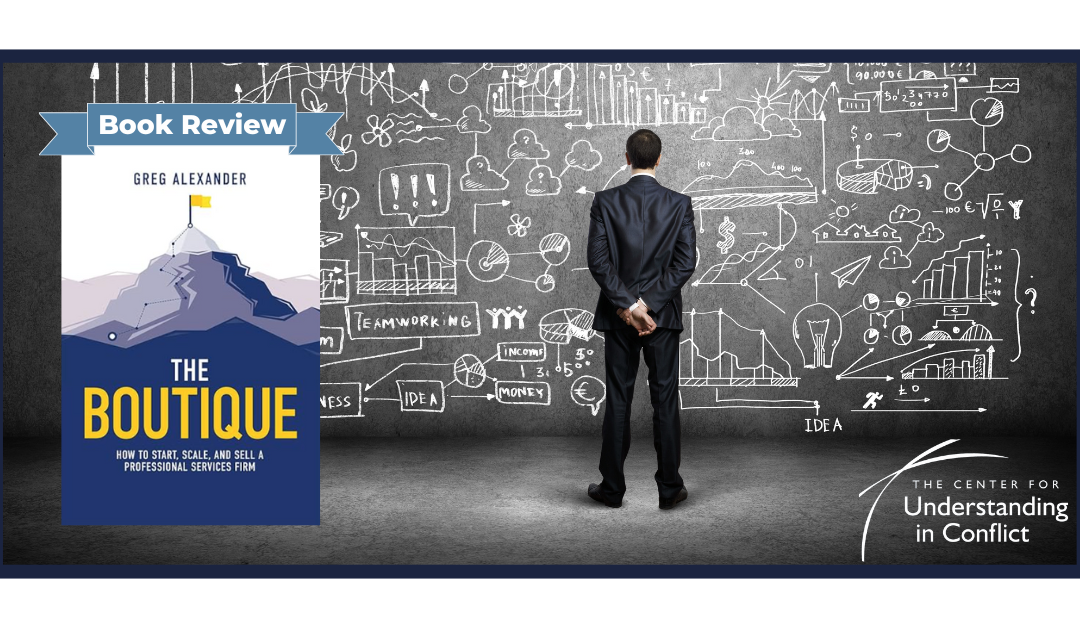For conflict resolution and mediation practitioners, starting a firm can often seem daunting due to the specialized nature of their work and the necessity for a robust reputation. Alexander demystifies this process by emphasizing the importance of establishing a clear value proposition and niche expertise. He advises readers to focus on what sets their services apart, crucial in a field where trust and credibility are paramount.
One of the core strengths of “The Boutique” is its emphasis on building a solid foundation. Alexander stresses the importance of meticulous planning and strategic thinking from the very beginning. This means having a deep understanding of mediation and acquiring business acumen from conflict resolution professionals. The book encourages professionals to develop a detailed business plan that outlines their target market, service offerings, pricing strategy, and marketing approach – comprehensive planning essential for ensuring the practice is viable and competitive.
Alexander also delves into the significance of brand building. A strong brand is synonymous with trust and expertise for conflict resolution professionals. The book provides strategies for establishing a brand that resonates with clients, including leveraging thought leadership and content marketing. Conflict resolution professionals can build a reputation as leaders in their field by sharing insights and showcasing their expertise through articles, blogs, and speaking engagements while also creating a compelling online presence, which is essential in today’s digital age, where prospective clients often conduct extensive research before engaging in services.
Financial management is another area where Alexander’s expertise shines. The book provides practical advice on managing cash flow, setting financial goals, and tracking performance. For conflict resolution professionals, understanding their firm’s economic health is crucial for making informed decisions and planning for growth. Alexander’s guidance on pricing strategies, billing practices, and financial forecasting can help ensure the business remains profitable and sustainable.
One of the most compelling aspects of “The Boutique” is its focus on the human element. Alexander acknowledges that professional services firms are built on relationships and trust. For conflict resolution professionals, this is especially pertinent as their work often involves sensitive and emotionally charged situations. The book emphasizes the importance of empathy, communication, and ethical conduct to build strong client relationships. Alexander’s advice on client management and retention is invaluable for maintaining long-term partnerships and a steady stream of referrals.
Greg Alexander’s blend of strategic insights, practical advice, and real-world examples provides a valuable blueprint for professionals seeking to navigate the complexities of starting and growing a business in conflict resolution. His emphasis on planning, branding, scalability, financial management, and client relationships ensures readers are well-equipped to build a thriving and sustainable firm.
While not written precisely for conflict resolution professionals, this book offers a primer to help those looking to develop a practice gain a general understanding before partnering with leaders in the field for guidance in navigating the unique challenges of building a practice in conflict resolution and mediation.
